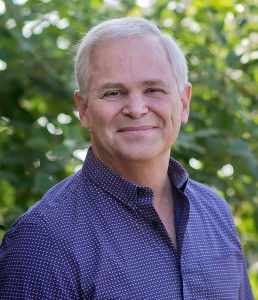
It’s a battle that rages in the heart of the preacher.
There is nothing more noble than to stand before your congregation on Sunday mornings and bring the Word of God. You preach to edify, to exhort, to win to Christ.
But in my experience, Thursdays and Fridays don’t feel noble at all. These are battle times. You’re locked in a death-to-self struggle before the Lord as you study, listen, and craft a message that will be helpful that weekend.
How do you live this sermon preparation war week after week? You know it’s your calling, but that doesn’t mean it’s easy.
What if you could learn a sermon prep hack that would help you think more clearly and communicate more effectively? What if this life-changing hack is as simple as a list of key questions?
Here are three sets of questions I’ve tacked above my desk to help me with sermon prep each week. I hope they’ll help you prepare to speak to the people God entrusts to you.
Andy Stanley’s Five Key Questions
Andy Stanley shows us how to focus on our listeners and on their life-change. Ask yourself these questions as you begin your sermon prep and you will preach a message that is practical and challenging.
- What do they need to know?
- Why do they need to know it?
- What do they need to do?
- Why do they need to do it?
- What can I do to help them remember what’s being taught today?
Dig into the Text
These four questions blend Biblical exegesis and strategic planning as you dig into the text of Scripture to discover its essence and relevance for you and your audience.
- What’s the problem that needs solving?
- What’s the solution?
- Why do we need the solution now?
- What part of the text motivates or excites me?
Sermons Made to Stick
Chip and Dan Heath, in their book Made to Stick, share six factors that help people remember and apply what you teach them. Here are their principles framed as questions and applied to the practice of preaching.
1.Is it simple?
A clear, compact statement is more memorable than a complicated one.
2. Is there something unexpected?
Your congregation finds amusement and inspiration on every screen. Don’t be the one place that bores them. Get their attention with something unexpected.
3. Are you being concrete?
A concrete example creates a picture in their minds. A black miniature poodle is easier to see than a dog.
4. Are you credible?
If people believe in you, they’re more likely to believe what you say. Gain credibility with:
- Your expertise. If you can show your listeners you know what you’re talking about, they’re more prone to believe you and remember what you said.
- Third-party credibility. An interview, testimony, or quote of someone who has done or been through what you’re talking about adds that person’s credibility to yours.
- Details. You’ll spend hours combing over your text while your audience only gets minutes. Filling in the details they missed will make the passage more concrete (which brings its own stickiness), and let them know you know your stuff. Beware though, if your motive is to impress people, they won’t be impressed. More likely, they’ll be repulsed by your erudition. Be down to earth and “normal” when you share details.
- Statistics. 90% of statistics may be made up on the spot, but 50% of them seem more credible because of the statistic. (That’s not true, but you get the point.)
5. Are you connecting with their emotions?
People care more when they are emotionally moved than when they are intellectually persuaded. Seeing a teenager baptize her father is far more moving than hearing an explanation of what happens when someone gets baptized.
6. Are you telling stories?
Stories motivate people to act. The story of David and his five smooth stones evokes bravery in us. The story of Samson’s sin motivates us to live more purely.
Stories demonstrate or illustrate the ways you are asking people to act or respond to what they’ve heard. A good story can come from the Bible, or from your life, or the lives of members of the church.
What’s Next?
We have a cheat sheet for this called “15 Questions that Will Make you Write Better Sermons”. You can find it in the Pastor’s Personal Toolbox. It’s a library of our best tools and resources — all in one place. Tap below to learn all about it, and get this worksheet, stick it over your desk, and use it as you write your sermons this week.
 Hal Seed is the founding and Lead Pastor of New Song Community Church in Oceanside, CA. He mentors pastors who want to lead healthy, growing churches with resources at www.pastormentor.com.
Hal Seed is the founding and Lead Pastor of New Song Community Church in Oceanside, CA. He mentors pastors who want to lead healthy, growing churches with resources at www.pastormentor.com.
Start Here to learn more about the resources available for you at PastorMentor.

Thanks so much and again thank you for being a blessing and a gift to the body of Christ globally.